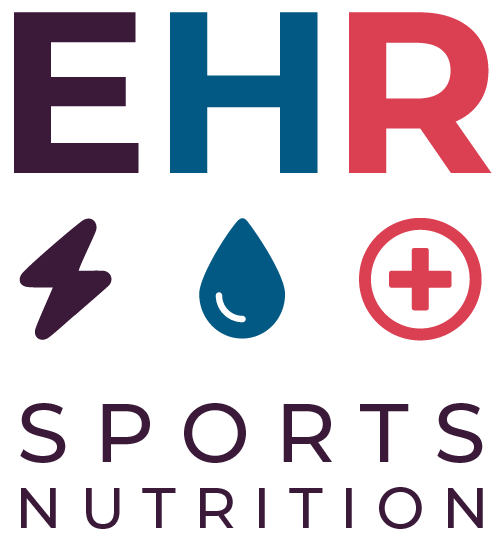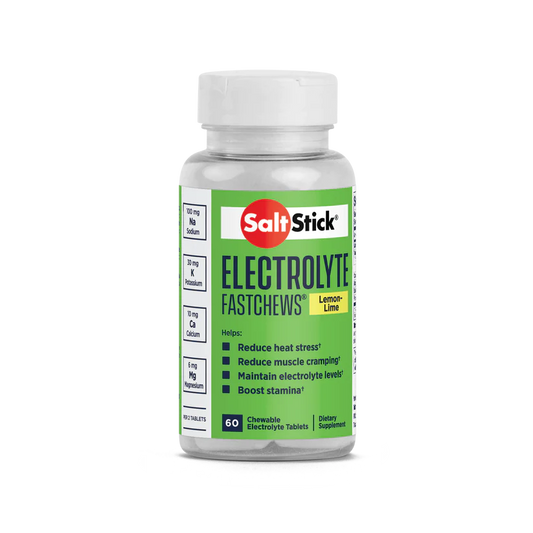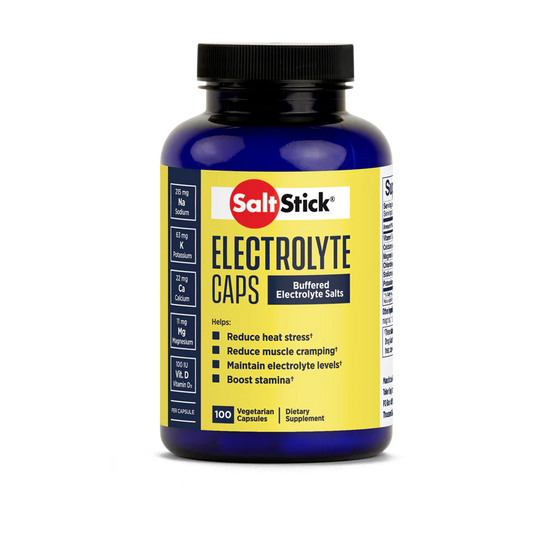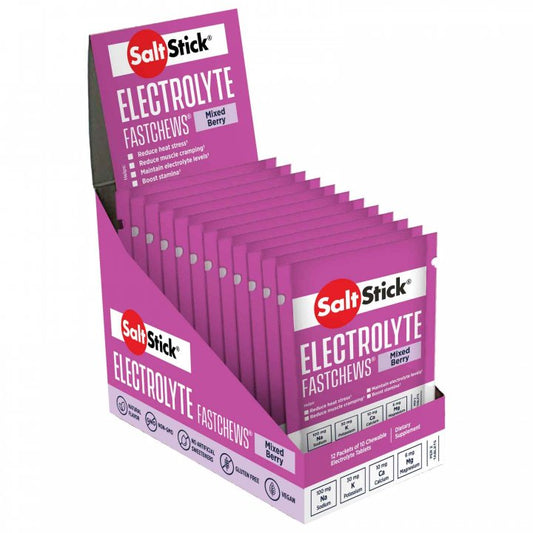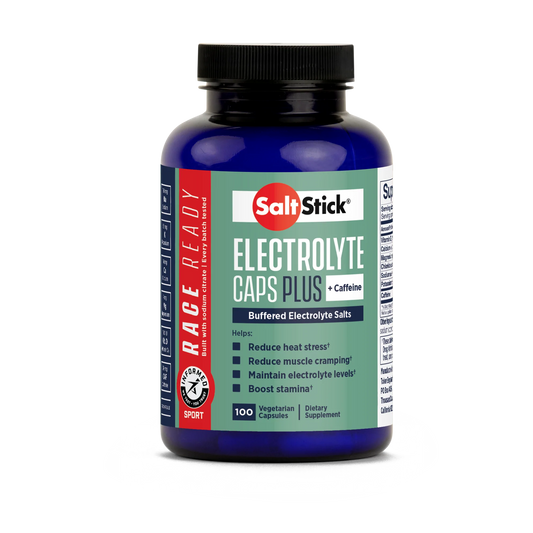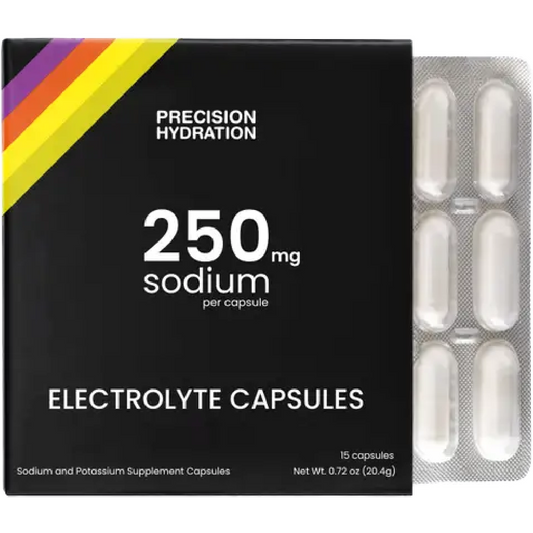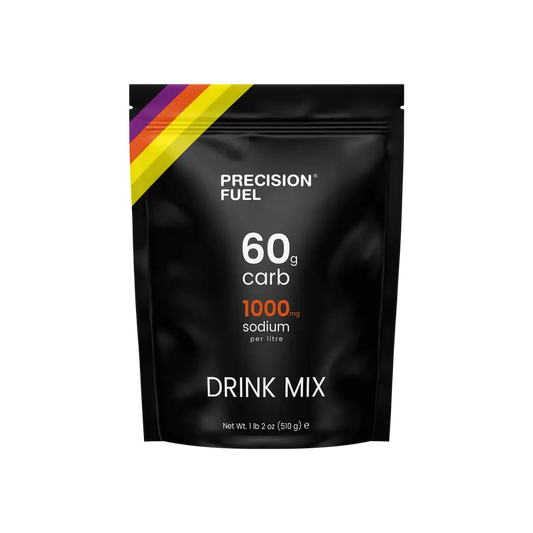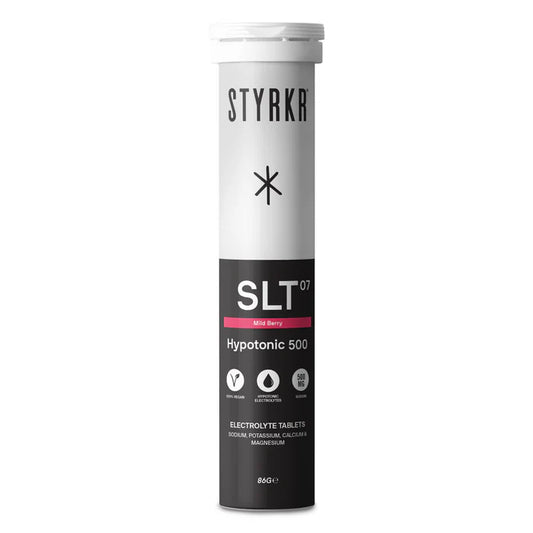Hydration
-
SaltStick FastChews (Electrolyte Chews) - 60 Chew Tub
Regular price £15.49 GBPRegular priceUnit price / per£15.99 GBPSale price £15.49 GBPSale -
Saltstick Caps (Electrolyte Salts)
Regular price From £1.99 GBPRegular priceUnit price / per£2.49 GBPSale price From £1.99 GBPSale -
SaltStick FastChews (Electrolyte Chews) - 10 Chew Packet
Regular price From £3.49 GBPRegular priceUnit price / per -
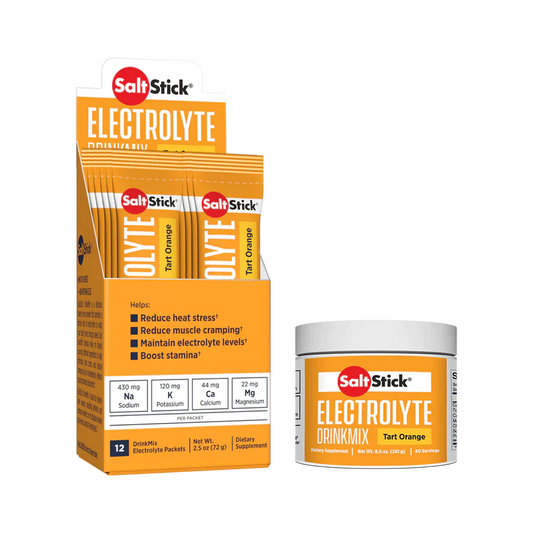 Sale
SaleSaltStick DrinkMix
Regular price From £1.49 GBPRegular priceUnit price / per£1.69 GBPSale price From £1.49 GBPSale -
SaltStick Race Ready Caps Plus (Electrolyte Salts)
Regular price From £2.99 GBPRegular priceUnit price / per£3.49 GBPSale price From £2.99 GBPSale -
Precision Hydration Electrolyte Capsules
Regular price From £5.99 GBPRegular priceUnit price / per£6.99 GBPSale price From £5.99 GBPSale -
Precision Hydration PF60 Drink Mix
Regular price £19.49 GBPRegular priceUnit price / per£24.99 GBPSale price £19.49 GBPSale -
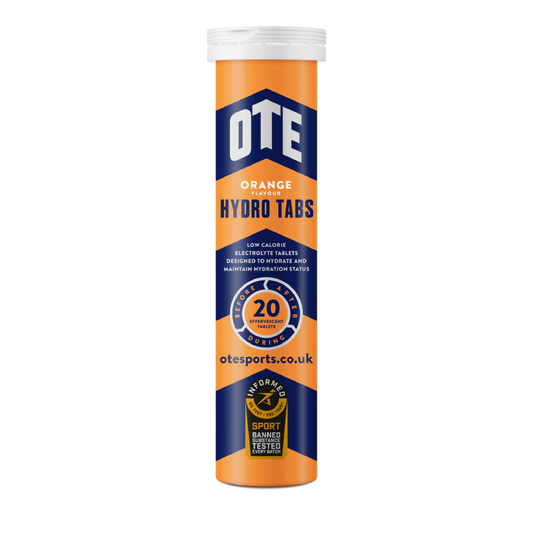 Sale
SaleOTE Hydro Tab
Regular price From £6.99 GBPRegular priceUnit price / per£7.50 GBPSale price From £6.99 GBPSale -
Styrkr SLT07 Hydration Tablets
Regular price From £8.49 GBPRegular priceUnit price / per£59.94 GBPSale price From £8.49 GBPSale
Collection: Hydration
We can survive for as long as a month in a moderate climate without food and struggle to stay alive for longer than two days without water. After oxygen, water is a close second on the list of essentials for life. Water makes up 60 per cent of your total body weight and performs many crucial functions.
Every day we lose fluid; it's part of the body's natural function. It's the sweating that runners need to pay attention to because as soon as you start to run, you begin to dehydrate. About 75 per cent of the energy you put into exercise is converted into heat and is then lost. Your body needs to keep a core body temperature within safe limits – around 37-38°C. Your body keeps cool by sweating, which makes the replacement of fluids crucial. Fail to consume enough liquid, and your blood will thicken, reducing your heart's efficiency, increasing your heart rate and raising your body temperature.
Before you start
You need to start a run or race hydrated. By drinking 500ml of fluid two hours before a run – try water, a sports drink or diluted fruit juice – and another 150ml of liquid just before you run, you'll have enough time for your body to clear what you don't need before you set off.
After you Run
Drink around 500ml in the first 30 minutes after your run, and keep gulping every five to 10 minutes until you have reached your target. If you pass only a small volume of dark yellow urine, have a headache, or feel nauseous, you need to keep drinking – sports drinks or diluted juice (with a pinch of added salt) are your best options.
How To Replace Fluids
You will undoubtedly need to replace sweat with fluids during some training runs and races, so what should you drink and when? Water, diluted juice and sports drinks are all good fluid replacers. If you've been running for less than an hour, plain water is a good choice, but if you have been running hard for longer than an hour, drinks containing sugar or maltodextrin (a slow-release carbohydrate) and sodium may speed your recovery. For example, a study found that runners who drank a sports drink (5.5g carbohydrate/100ml) improved their running time by 3.9 minutes over 42km compared with drinking water.
Sports drinks containing carbohydrates also increase water absorption into your bloodstream, which counts when sweating heavily. Researchers found that drinks containing approximately 6g carbohydrates/100 ml are absorbed the most rapidly. The taste of a flavoured sports drink will also encourage you to drink more than plain water.
While sodium in sports drinks does not directly affect performance, it does have one key benefit: it increases the urge to drink and improves palatability. If you drink plain water, it dilutes the sodium, thus reducing your desire to drink before you're fully hydrated.
Each of us sweats at a different rate, so how much you need to drink depends on how heavily you sweat. The more intense and longer you exercise, the more you sweat. Training in hot, humid conditions also makes you sweat more; some people sweat more than others.
Current guidelines recommend drinking anything from 300ml to 800ml of fluids per hour while exercising. You must try different approaches to hydration in your training to establish a strategy that works for you.
Exactly how much is enough?
So how do you know if you're hydrated before you start a run? The most straightforward, practical test is to check the colour of your urine. Pale yellow urine indicates you're within one per cent of optimal hydration.
Drink one litre of water for every 1,000 kcal you burn daily. (An average male burns around 2,500kcal a day, and a runner covering five miles a day more like 3,000kcal.) Generally, we need two to three litres of liquid daily – half from food and half from fluids.
Hypowhat?
What's the difference between hypotonic, isotonic and hypertonic drinks?
A hypotonic drink is more dilute than your body fluids, which means it can be absorbed faster than plain water. For example, squash diluted at least 1:8 with water, or one part fruit juice diluted with three parts water.
Isotonic means the same concentration (i.e. the same number of particles per 100ml) as your body fluids – it is absorbed as fast as or faster than water. So they provide an ideal compromise between rehydration and refuelling. Hypertonic drinks, such as cola, lemonade or neat fruit juice, are more concentrated than body fluids and will be absorbed more slowly than plain water. Hypertonic drinks slow down the rate at which the stomach empties, reducing the speed of fluid replacement. These are better post-run drinks offering a higher energy dose with the fluid.
